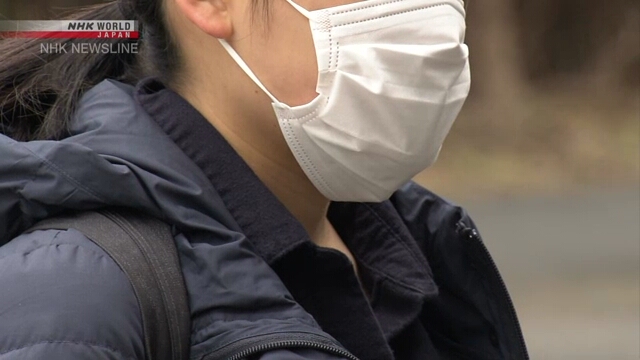
Japan Industry Groups Review Mask-Wearing Guidelines
Japanese industry organizations are reviewing their anti-coronavirus guidelines that mostly call on people to wear masks indoors.
The government is urging organizations to adjust their guidelines, as it plans to allow individuals to decide whether to wear masks indoors and outdoors starting on March 13. The government currently recommends people wear masks indoors, but not outdoors.
Four industry organizations have already announced revised guidelines, those for clerical work, manufacturing, private-sector certification testing and amusement arcades.
They say they will no longer insist masks be worn, or make such a request in all cases. But they say they will maintain other anti-infection measures, such as adequate ventilation.
An airline industry organization says it will leave it up to individual passengers and employees to decide whether to wear masks on flights.
The policy is in line with the government's intention to allow people not to wear masks on transport on which people can normally take seats, such as airplanes, shinkansen bullet trains and expressway buses.
An organization representing accommodation facilities, movie theaters, restaurants and other businesses is planning to review its guidelines.
Other industries are having difficulty deciding their policies because of customers' concerns and the infection risks unique to their business venues.
Operators of karaoke parlors say they will carefully consider whether and how to change their guidelines. The industry was frequently asked to suspend its business when infection counts started rising.
The motorboat racing industry says it is consulting with the government on a possible plan to continue recommending that spectators wear masks. Races often spur loud cheers by fans, many of whom are elderly.
All industry groups, including those that have already revised their guidelines, say it will be up to each business and outlet to work out their own mask-wearing rules.
An NHK opinion survey conducted in February found that half of respondents said they would continue wearing masks after the government eases its recommendation.
The government plans to redouble efforts to prevent confusion as the rules are eased. Masks will still be recommended on some occasions, such as when seeing a doctor, and on crowded trains or buses.
Doshisha University Professor Nakayachi Kazuya has been researching how people's mindsets have shifted during the coronavirus pandemic.
Nakayachi says people will frequently have to decide for themselves whether to take anti-infection measures, and what they should be. He says that for the foreseeable future, both people who worry about going without masks, and those comfortable without masks, may feel uneasy when they are in the same place.
He calls on each industry to inform its customers of both high-risk and low-risk situations.
Source: https://www3.nhk.or.jp/nhkworld/en/news/20230224_01/
 English
English Japan
Japan
